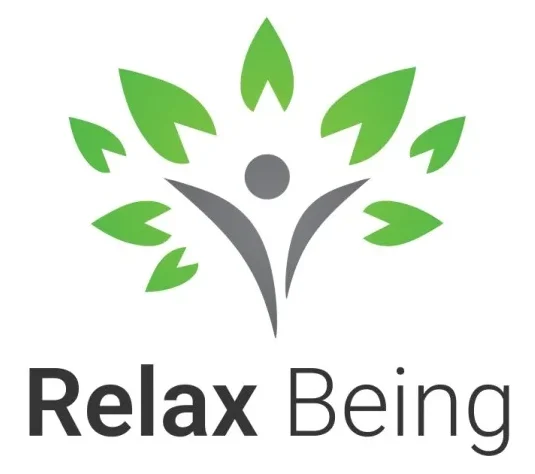Relationships and Mental Health
In my own journey, I’ve come to realize that Relationships and Mental Health are not just about companionship but a fundamental part of our mental health and overall wellbeing. The way we connect with people can either ease stress or increase anxiety, depending on how we handle conflict and the source of our challenges. For example, I once noticed that when I had open and honest conversations with close friends, my worries felt lighter, and my confidence grew stronger.
On the other hand, unresolved arguments drained me mentally and even impacted my daily routine. Through both personal experience and professional insights, I’ve learned that nurturing healthy bonds is one of the most powerful ways to protect and improve mental strength.
Common myths about Relationships and Mental health
When Relationships Feel Easy and Effortless
In my own journey, I’ve come to realize that Relationships and Mental Health are not just about companionship but a fundamental part of our mental health and overall wellbeing. The way we connect with people can either ease stress or increase anxiety, depending on how we handle conflict and the source of our challenges. For example, I once noticed that when I had open and honest conversations with close friends, my worries felt lighter, and my confidence grew stronger.
On the other hand, unresolved arguments drained me mentally and even impacted my daily routine. Through both personal experience and professional insights, I’ve learned that nurturing healthy bonds is one of the most powerful ways to protect and improve mental strength.
Seeing the Hidden Signs in Toxic Connections
Many people assume that toxic relationships and mental health are always obvious and easy to identify, but in reality, the truth is far more subtle. From my own work and personal observations, I’ve noticed how such dynamics are often complex and evolving, gradually appearing in ways that may even seem positive on the surface.
Only by recognising the unhealthy patterns over time do we begin to understand how deeply they affect our relationships and mental health. It is important to remember that your trust in your own instincts is not something to dismiss, even if others don’t see what you’re experiencing.
When I once felt trapped in a difficult situation, I realised how vital it was to seek support when it was truly needed. What seems acceptable at first may slowly drain your confidence, and unless you are watchful, the changes blend in quietly.
Toxic relationships rarely announce themselves; instead, they creep into your life, testing your boundaries and emotions. Learning to notice these patterns not only protects your peace but also helps you rebuild healthier connections that strengthen both relationships and mental health.
A Strong Bond Isn’t About Agreeing on Everything
In every strong relationship, it is a natural part of life that people will sometimes disagree. From my own experience, I’ve seen that real growth comes not from always agreeing, but from how differences are handled. The key is to focus on better ways of building understanding, even when small conflicts appear. These moments, if managed with patience, often lead to deeper mutual trust and a healthy bond.
What helps partners truly thrive is not a lack of problems but the presence of respect and open communication. I’ve noticed that when both sides listen without judgment, the relationship becomes safer and more connected. A strong connection does not mean avoiding conflicts; it means facing them together with mutual care and understanding, creating space where both can grow and feel valued. This balance is essential for both relationships and mental health.
What Defines a Positive Relationship?
A positive relationship is often characterized by mutual trust, respect, support, and effective communication. From my own experience, the healthiest bonds come alive when two people feel safe enough to be themselves while still showing care for each other’s growth.
Researchers Brooke Feeney and Nancy Collins studied positive relationships and outlined key components that define them, noting that they are marked by responsiveness, being emotionally available, and attuned to needs. This creates a secure attachment bond that fosters safety, intimacy, cooperation, and collaboration.
When individuals work together toward common goals and pursuits, the connection naturally enhances connectedness, shared purpose, satisfaction, and fulfillment. I’ve seen how couples and friends who emphasize interactions with validating and affirming tone and quality experience regular enhanced emotional well-being.
A truly positive relationship is not about perfection but about consistency in care, patience, and openness qualities that allow both people to thrive. These values also form the foundation of healthy relationships and mental health.
The Impact of Positive Relationships on Mental Health
Human beings are naturally social creatures, and unlike many other species of animals, we thrive when surrounded by close-knit family structures, loyal friends, and caring family members. From my own experience, having genuine emotional support during tough times builds a strong sense of belonging and helps create a healthy mind.
When people are collaborating with coworkers, bonding with peers, or sharing with loved ones, they often achieve not just personal comfort but also larger goals in life. The quality of these relationships and mental health outcomes are directly connected, which many researchers confirm as one of the most important aspects of human life.
On the other hand, constant isolation or negative interpersonal relationships and mental health can trigger a decline in self-esteem, worsen moods, and contribute to poor . I have seen firsthand how stress at work or tension with coworkers can affect motivation, while support from the same peers can completely turn things around. Strong, positive relationships act like a shield, balancing the emotional challenges of daily life, while broken bonds or lack of trust can quietly eat away at happiness and stability.
How Do Our Relationships Affect Mental Health?
Our relationships and mental health have a powerful impact on mental health and overall well-being. From family, friends, to romantic partners, the way we connect with others can either contribute to a greater sense of happiness, improved physical health, and an enhanced quality of life, or they can turn into negative relationships often characterized by conflict, stress, and emotional turmoil.
I have personally noticed how positive relationships provide energy and calmness, while strained ties leave me mentally drained. This real-life difference reflects what numerous studies have shown that healthy, supportive relationships play a significant role in preventing mental health issues, reducing stress levels, and promoting psychological well-being.
When I think about my own journey, I can clearly see how familial relationships and friendships deeply affect mental balance. For example, small moments with friends can instantly lift my mood, while misunderstandings with family sometimes bring hidden stress. These day-to-day shifts remind us how deeply relationships and mental health shape our inner peace and resilience.
Family Relationships and Mental Health
In my own experience, family play a powerful role in shaping relationships and mental health and overall well-being, and many studies have illustrated the positive impact of strong connections on both physical and psychological wellness.
Growing up in supportive environments gave me a sense of belonging and security, reducing feelings of loneliness and isolation while offering consistent emotional support. I’ve noticed that individuals who feel loved and accepted by members of their families often develop better coping mechanisms and resilience, which ultimately lowers the risk of disorders like anxiety and depression.
Reliable information and guidance from close ones can lead to improved self-esteem, a positive self-image, and higher levels of self-worth through daily validation and affirmation, which helps foster identity and boost confidence. I’ve also seen how this warmth is linked to stronger immune system functioning, quicker recovery from illnesses, reduced stress, and lower chances of cardiovascular diseases as hormone levels become decreased and heart strain is eased.The underestimated value of nurturing and supportive families has far-reaching effects, guiding people to be happier and healthier, and showing how strongly family shapes relationships and mental health.
Healthy Friendships and Positive Mental Health
I have often noticed in my own life that healthy friendships create a profound impact on both my mental and physical state, shaping my sense of identity and purpose. When we feel supported and valued, it naturally increases self-esteem and makes us believe that we significantly contribute to the overall well-being of our circle.
Good friends who offer empathetic listening without judgment provide a safe space to express feelings, concerns, and even difficult emotions, which helps us navigate challenges more effectively. I’ve personally felt how such relationships encourage behaviors that prioritize self-care, whether it’s exercising, eating mindfully, or practicing calming habits that keep energy levels steady and stress in check.
What makes these connections even more enjoyable is the shared activities, the laughter, and the small experiences that feel motivating and deeply meaningful. Spending time with people who make you feel understood provides relief, distraction, and even the release of tension through simple acts like an ear for advice or playful moments that turn into memories.
This kind of support not only brings encouragement but also plays a crucial role in promoting resilience and improved well-being. Ultimately, strong friendships show us how relationships and mental health go hand in hand in creating a fulfilling life.
How to Develop More Positive Relationships
Developing strong and positive relationships is crucial for maintaining good mental health and overall well-being. From my own experience, setting aside quality time for a real connection with the people who matter most can be a powerful strategy to enhance life. It’s about making a conscious effort to spend uninterrupted moments, whether through meaningful conversations or productive activities.
Even when it’s tempting to let work tasks take over, taking a pause for a deep talk can greatly strengthen bonds. This often involves actively listening, being open, sometimes even vulnerable, and genuinely engaging with a person as a human being.
In my journey, I’ve noticed that connections grow when we engage in shared hobbies, explore interests, or go volunteering together. Even simply walking in nature can provide opportunities to bond on a deeper level and create lasting memories. Such effort to nurture ties is important, as it helps us build stronger and more fulfilling relationships and mental health outcomes that contribute to a healthier and more essential life. These small choices, when repeated, foster trust and create moments that nurture not only love but also the sense of belonging every one of us seeks.
How to help others in their relationships
I have often seen how supporting someone through their relationships and mental health challenges can make a real difference. In my own experience, just listening without judgment is one of the most powerful ways to truly help. Sometimes people don’t need solutions, they just need space to share their fears and hopes.
Offering gentle encouragement, reminding them of their strengths, and being patient during tough times can guide them toward healthier choices. Small acts of kindness, like checking in regularly or sharing a comforting word, can be more valuable than big gestures. By being present and consistent, you show that they are not alone, which often brings relief and strength in moments of struggle.
Be a good listener
When I tried to truly support a close friend during a tough time, I realized how powerful listening can be. Creating a safe space where someone can openly express their feelings without fear of judgement makes them feel genuinely heard and validated. Practicing active listening is not just about staying quiet, but about showing with words and actions that you are present, which can deeply help another person feel cared for. From my own experience, when people know they have a trusted listener, it strengthens relationships and mental health for both sides.
Offer perspective
Sometimes the best way of helping in a relationship is not to speak louder, but to respond more gently, guiding someone to see different viewpoints with patience. In my own life, I have learned that when friends came to me, it mattered more to encourage their reflection than to rush in with solutions. By showing real understanding and being truly empathetic, we can avoid giving unsolicited advice that was never asked for. Instead, we hold space for them to explore what feels right, knowing that perspective offered with care often builds stronger trust and deeper connections.
Encourage healthy communication
In my own life relationships and mental health, I have seen how important it is to encourage my friends and loved ones to practice open and honest communication, especially when relationships feel struggling under pressure. When a conflict arises, I often suggest simple strategies for managing disagreements more calmly and respectfully, like pausing before reacting or listening without interrupting. These little steps create a safe space where people feel valued and understood, which makes bonds stronger and more meaningful.Healthy communication always supports both relationships and mental health.
Help set boundaries
From my own journey, I’ve learned how important it is to Encourage others to set healthy boundaries in their relationships, because it can truly protect their relationships and mental health. Sometimes just offering gentle support in this area gives them the help they need to maintain a stronger sense of control and safety. I have seen friends struggle until they realized that saying “no” was not selfish but a way to create balance. With a little guidance and compassion, you can inspire people to see that boundaries are not walls but bridges that keep connections respectful and nurturing. Boundaries play a key role in supporting both relationships and mental health.


